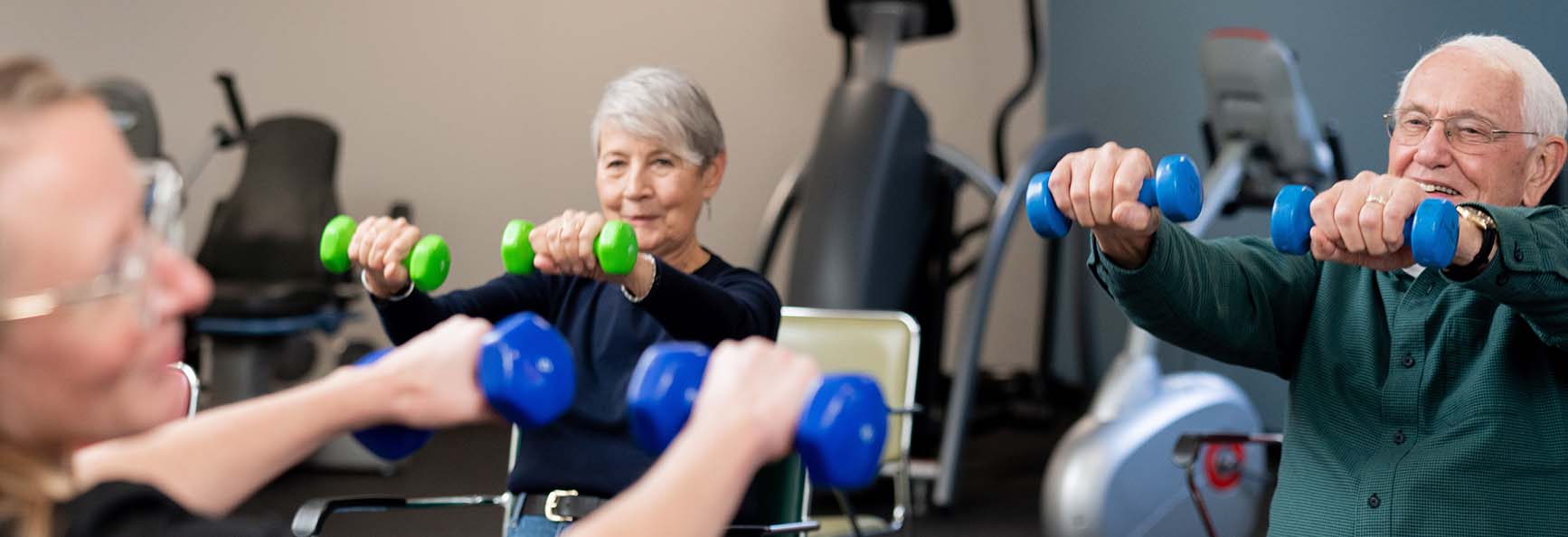Importance of Activity for Stages of Dementia
National Therapeutic Recreation Week is an annual week-long event celebrated during the second week of July. It's established by the National Therapeutic Recreation Society to raise awareness about the benefits of therapeutic activity programs and services designed to improve the health and well-being of individuals with physical, mental, and emotional disabilities. Meaningful and purposeful engagement and activity is important across the lifespan and helps reduce loneliness, depression, and anxiety, while also promoting cognitive function and physical health. Engaging in activities that bring purpose, and joy can improve overall quality of life and even increase longevity. But, for the most vulnerable seniors, those with dementia, purposeful engagement can sometimes be a challenge. This article addresses activity programs for individuals living with dementia. Activities are categorized by stage of the disease process.
When designing activity programs, it is important to give the resident an activity that he or she enjoys, based on previous interests and hobbies, one in which he/she can engage and can successfully complete. Some considerations by stage of dementia include:
Early Stage/Mild Dementia Activities
The purpose of these activities is to provide meaningful and purposeful activities, social and cognitive stimulation, functional mobility activities, fine and gross motor skills for those residents with mild cognitive impairment and early-stage dementia.
Components:- Familiar routine and schedule
- Can follow simple verbal and written instructions
- Activities that focus on the whole task
Activity Suggestions: Activities should be matched to previous interests and hobbies, for example:
- Craft projects
- Homemaking activities such as cleaning, folding clothes, sweeping, raking, setting the table
- Simple maintenance activities with tools
- Cooking activities
- Gross motor activities
- Spend time in nature
- Build or make something
- Enjoy a movie
- Simple games
- Read out loud
- Care for the facility dog/cat
- Pot plants
- Water plants
- Feed the birds
- Prepare tea or coffee
- Play an instrument or the piano
Middle Stage/ Moderate Dementia Activities
The purpose of these activities is to provide meaningful and purposeful activities, social and cognitive stimulation, functional mobility activities, fine and gross motor skills for those residents with moderately reduced cognitive function and middle-stage dementia.
Components:- Completing components of tasks
- Can follow simple verbal instructions
- Requires cueing
- Will benefit from reminders and calendars
- Activities that focus on the individual steps of the activity
Activity Suggestions: Activities should be matched to previous interests and hobbies, for example:
- Homemaking tasks like dusting, folding towels and clothes, setting the table, dry dishes
- Matching activities
- Craft projects
- Play catch or toss a ball
- Play horseshoes
- Making fresh squeezed orange juice
- Flower arranging
- Model with clay
- Paint or draw
- Wash and dry dishes
- Put silverware away
- Decorate for holidays
- Create greeting cards
- Plant and water flowers
- Look at photos in a photography book or magazine
- Complete a puzzle together
- Exercise
- Encourage the person to talk more about subjects they enjoy
- Make a family tree posterboard
- Make a snack
- Sing alongs, rhythm session
Late or End Stage/Severe Dementia Activities
The purpose of these activities is to provide meaningful and purposeful activities, social and cognitive stimulation, sensory stimulation and joint motion for those residents with severely reduced cognitive function and late-stage dementia.
Components:- Sensory stimulation
- Activities that focus on the sensory part of an activity
- Hand over hand guidance
- Active and passive range of motion
Activity Suggestions: Activities should be matched to previous interests and hobbies, for example:
- Music program with handheld instruments
- Sensory activities e.g., smelling baking bread, kneading dough, watching nature scenes
- Sit on a bench or a swing
- Watch dogs at a dog park
- Sit on the porch and drink coffee, hot chocolate or lemonade
- Eat ice cream
- Listen to the person's favorite music
- Look at family photo albums
- Model with play dough
- Ask the person about his or her childhood, siblings, school, pets or first car
- Read from one of their favorite books
- Read the newspaper together or read it to them
- Give the person a hand massage with lotion
- Brush his or her hair
- Give the person a manicure
- Take photos of the person and make a collage
- Play catch or toss a ball
- Sing alongs, rhythm session
While an individual with dementia may lose certain abilities as the disease progresses, many skills, abilities and emotions remain. It is important to foster purposeful and meaningful engagement all along the course of the disease. Purposeful engagement is a person-centered approach to engaging the person with dementia so they can continue to participate in activities and contribute to what is going on around them, thus promoting quality of life.


